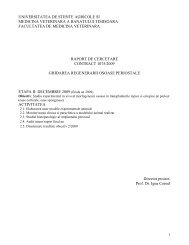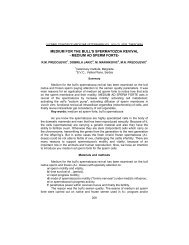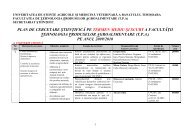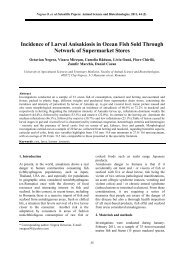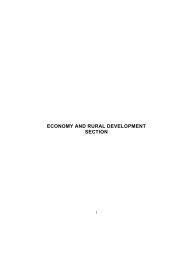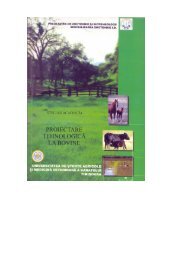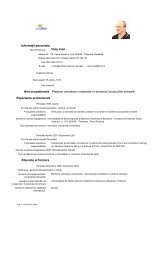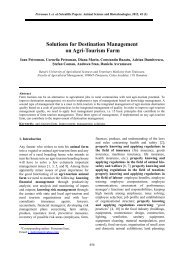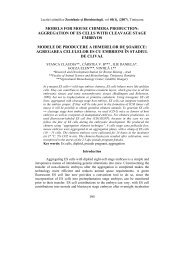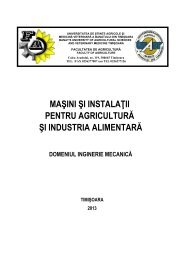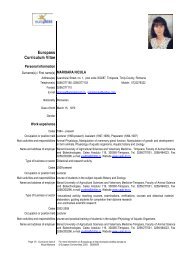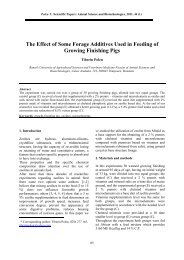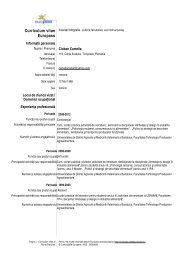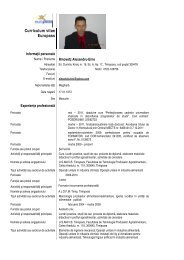journal of linguistic studies
journal of linguistic studies
journal of linguistic studies
You also want an ePaper? Increase the reach of your titles
YUMPU automatically turns print PDFs into web optimized ePapers that Google loves.
ANGLICISMS IN THE MONTENEGRIN LANGUAGE<br />
WITHIN COMPUTER CONTEXT<br />
IGOR IVANOVIĆ<br />
University <strong>of</strong> Montenegro, Podgorica, Montenegro<br />
iggybosnia@gmail.com<br />
ABSTRACT<br />
This paper deals with acquisition <strong>of</strong> lexical elements from English into<br />
Montenegrin. The scope <strong>of</strong> our analysis is limited to computer-related discourse<br />
where the abovementioned acquisition in the Montenegrin language is the most<br />
obvious one. The paper is methodologically and conceptually based on the Anglicism<br />
adaptation theory <strong>of</strong> Rudolf Filipović. The main portion <strong>of</strong> our paper deals with the<br />
corpus analysis, where we have given statistical overview <strong>of</strong> translated, adopted and<br />
model words. Additionally, we will <strong>of</strong>fer general statistics related to the current<br />
situation in the Montenegrin language when it comes to the frequency <strong>of</strong> Anglicisms<br />
from the computer-related discourse.<br />
Keywords: Anglicisms; Lexical Borrowing; Computer Discourse; Contact Linguistics<br />
1. INTRODUCTION<br />
Information revolution took place in the 20 th century and directed the world into a<br />
new dimension which will be <strong>of</strong> essential importance for its further development.<br />
Furthermore, the revolution “deleted” most <strong>of</strong> the elements that were not in accordance to<br />
its maxims, and accordingly, promoted elements that were in line to its principles. It has<br />
introduced new standards, and all <strong>of</strong> the abovementioned changes were put forward<br />
through the most prominent tools <strong>of</strong> the revolution: Internet (i.e. computers). It has also<br />
created an “independent”, virtual reality with its own rules.<br />
All <strong>of</strong> these observations are fully applicable to the <strong>linguistic</strong> reality, and their impact<br />
on different languages is more than clear. As we have already stated, the new reality is set<br />
into motion, and that requires a number <strong>of</strong> new words which will be used in order to<br />
mirror the new reality. Since most <strong>of</strong> this reality is taking place in English speaking<br />
countries, consequently, we are witnesses to the surge <strong>of</strong> lexical elements originating<br />
from English. Numerous English words were created (and still are) and they spread<br />
throughout the world together with the products bearing such words as their names.<br />
Through their daily use (computers, mail, attachments), they have become an inextricable<br />
part <strong>of</strong> our languages.<br />
Our paper is based on the hypothesis the Montenegrin language has acquired a large<br />
number <strong>of</strong> lexical elements directly related to the field <strong>of</strong> computers. Some <strong>of</strong> these<br />
elements went through the process <strong>of</strong> primary <strong>of</strong> secondary adaptation, and a part <strong>of</strong> them<br />
remained in the form <strong>of</strong> model word.<br />
In the context <strong>of</strong> such an extensive acquisition the following observations are hard to<br />
believe in. The first observation is related to the fact the influence <strong>of</strong> English on other<br />
languages, prior to 1900, was a relatively moderate one (Sapir 1921):<br />
17



